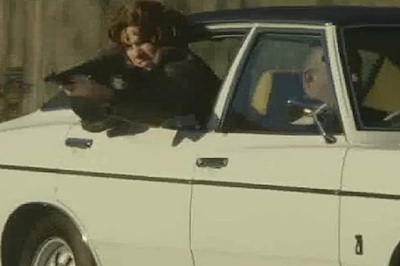
A decision by the PSNI police not to investigate the admitted sectarian murders by an undercover British army unit is being described as a devastating injustice against the families of the victims.
Although members of the Military Reaction Force (MRF) gave clear descriptions of their killings in a BBC documentary last year, the PSNI police have now decided there was no admission of criminal activity and they will not bring charges.
The TV revelations included details of shootings of innocent unarmed civilians by British soldiers during the most violent year of the conflict, mainly in ‘drive-by’ shootings using civilian cars and plain clothes.
In the documentary, some of those who carried out the attacks openly admitted their involvement. Wearing thin or no disguises, they said it was because the British Army “took the war to the IRA”.
The families of two people believed to have been killed by this ‘elite’ unit have now been informed, through their lawyer, that a PSNI Assistant Chief had formed the opinion that none of those interviewed had admitted a criminal act.
Patricia McVeigh, whose father Pat was one of the unarmed civilians shot dead by MRF soldiers, has called on the Police Ombudsman to review the case.
“As a family we are totally shocked and dismayed,” she said. “The three MRF men in the Panorama programme appeared to gloat about their activities at that time.
“Anyone watching the programme could be in no doubt what kind of unit this was. I would like to know how ACC [Assistant PSNI Chief Drew] Harris took to come to this conclusion.”
The programme makers said they were not contacted in relation to the PSNI review of the case.
Ms McVeigh’s lawyer, Padraig O Muirigh said: “It is very clear from the Panorama programme that these MRF soldiers did not believe, or were advised by their superiors, that the rule of law did not apply to them.
“One MRF soldier openly admitted on camera that they were there to ‘act like a terror group’ and that the MRF shot people in situations where it was not clear whether the individual was armed or not.”
Patrick Corrigan of Amnesty International said the assertion that no crime had been committed “will seem completely incredible” to anyone who watched the BBC Panorama programme.
“The soldiers who spoke in the programme say they were given a specific mandate to act outside the normal rules of the army - and therefore the rule of law,” he said.
While there were suggestions the announcement was timed to balance a decision not to charge Sinn Fein leader Gerry Adams over IRA actions (also in 1972) Sinn Fein policing spokesperson Gerry Kelly said that the ex-soldiers had not even been questioned about the events.
“This is in the face of others being questioned under caution about issues going back 40 years,” he said.
“This latest knock-back to families whose loved ones were killed by British state forces comes in the aftermath of Theresa Villiers refusing a Hillsborough-type inquiry to the families of those killed in the Ballymurphy massacre.
“People will be left with the clear view that British state forces remain above the law.
“This is a further insult to victims and families of those targeted by this undercover military unit.”
![[Irish Republican News]](https://republican-news.org/graphics/title_gifs/rn.gif)
![[Irish Republican News]](https://republican-news.org/graphics/title_gifs/harp.gif)

